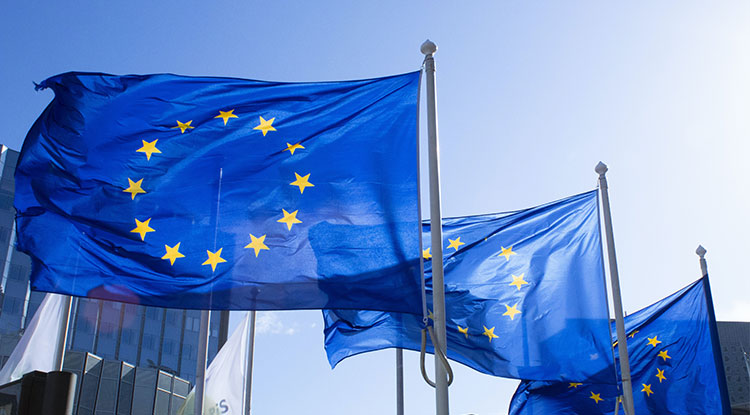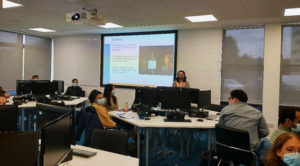Irish language became an official language of the European Union
At midnight, on 31 December 2021, the Irish language was granted full official and working status in the European Union, which means that it is now on a par with all other official EU languages. The derogation of the status of the Irish language in the European institutions has finally come to an end.
In 2005, after a long period of campaigning, the Irish Government applied for Irish to become an official and working language in the EU and it was granted this status two years later, in January 2007.
Derogation of the Irish Language
However, due to a shortage of translation staff and technological resources, it was announced that there would be a limit to the amount of material provided in Irish compared to other EU languages, a limit which was to remain in place until 2010.
This derogation arrangement was then extended by five years, until 31 December 2016.
In 2015, following a request from the Irish Government, the EU agreed to gradually bring the derogation arrangement to an end by 1 January 2022, granting the Irish language full EU status.
Increase in Material provided in Irish in 2022
Now that the derogation of the language has ended, it is estimated that the amount of legislation translated into Irish in the European Commission will rise by 70%. From this day forward, it is said that EU institutions must be prepared to meet all demands regarding the translation of legislation into Irish and will be required to recruit expert teams of translators to satisfy the increased demand for Irish language material.
From 1 January, it will now be a requirement that every international agreement must be published in Irish and there will be a significant increase in the amount of documents detailing the work of the Union that are to be translated into Irish. According to an assessment made by the Commission, there will a two-fold increase in such documents.
New Translators
Previously, there were concerns that the EU would struggle to meet the demands of the increased workload of Irish language translation should the derogation of language status come to an end.
The European Commission is adamant, however, that there are enough Irish translators currently employed to deal with the increased workload, even though over half of the current translators are employed on temporary contracts.
Over 170 people are currently working together for the Irish language in Brussels and in Luxembourg and that number is predicted to rise in 2022. It is expected that around 200 Irish language translators will be employed in the EU this year and that the number of Irish translation staff will be on a par with the staff of all other EU languages.
Statement from the Government
Minister of State for the Gaeltacht and Sport, Jack Chambers TD said that the full status granted to the Irish language “will strengthen the relationship between citizens and European administrative systems.”
He said that “together with the Official Languages (Amendment) Act 2021 signed by the President of Ireland last week, the role of the Irish language in national and European systems of administration has now been significantly strengthened.”
The Future of the Language in Europe
This decision is a huge success for the Irish language on the international stage and should be celebrated. Now that there is a growing demand for Irish language material, there will be a significant increase in employment opportunities for those who wish to pursue a career in translation. A strong, passionate Irish community has been flourishing in Brussels for several years and new members would be welcomed with open arms.
Since the Irish language became an official language of the European Union, all EU websites are now translated into Irish. The Irish language has as important and as visible a role as any one of the EU languages and a wide range of in-depth information regarding a variety of topics can be found through Irish.
These websites are an incredibly valuable source for translators in Ireland who are practicing their trade or who are seeking employment in EU institutions, and for university or second level students in Gaelscoileanna (Irish-medium schools) throughout the country or in schools in Gaeltacht areas.
Detailed discussions regarding politics, social issues, legislation, security, and the environment can be found through Irish on the European Parliament website, for example, as well as up to date news stories and videos in Irish which are published regularly.
This is a huge step forward for the Irish language in the modern era and a huge source of hope for those who are immersed in the language in their work.
Irish Translation Specialists
At DCU Language Services, we take pride in providing high-quality linguistic services into +70 languages, including translations to and from Irish. We cooperate with a wide variety of Government Departments (Public Sector) and private companies to provide Professional Irish translation services.
If this translation service sounds like what you need, please contact us by filling out the quotation form, and we will quickly come back with an estimation of your translation project.
Photo by Alexandre Lallemand.






